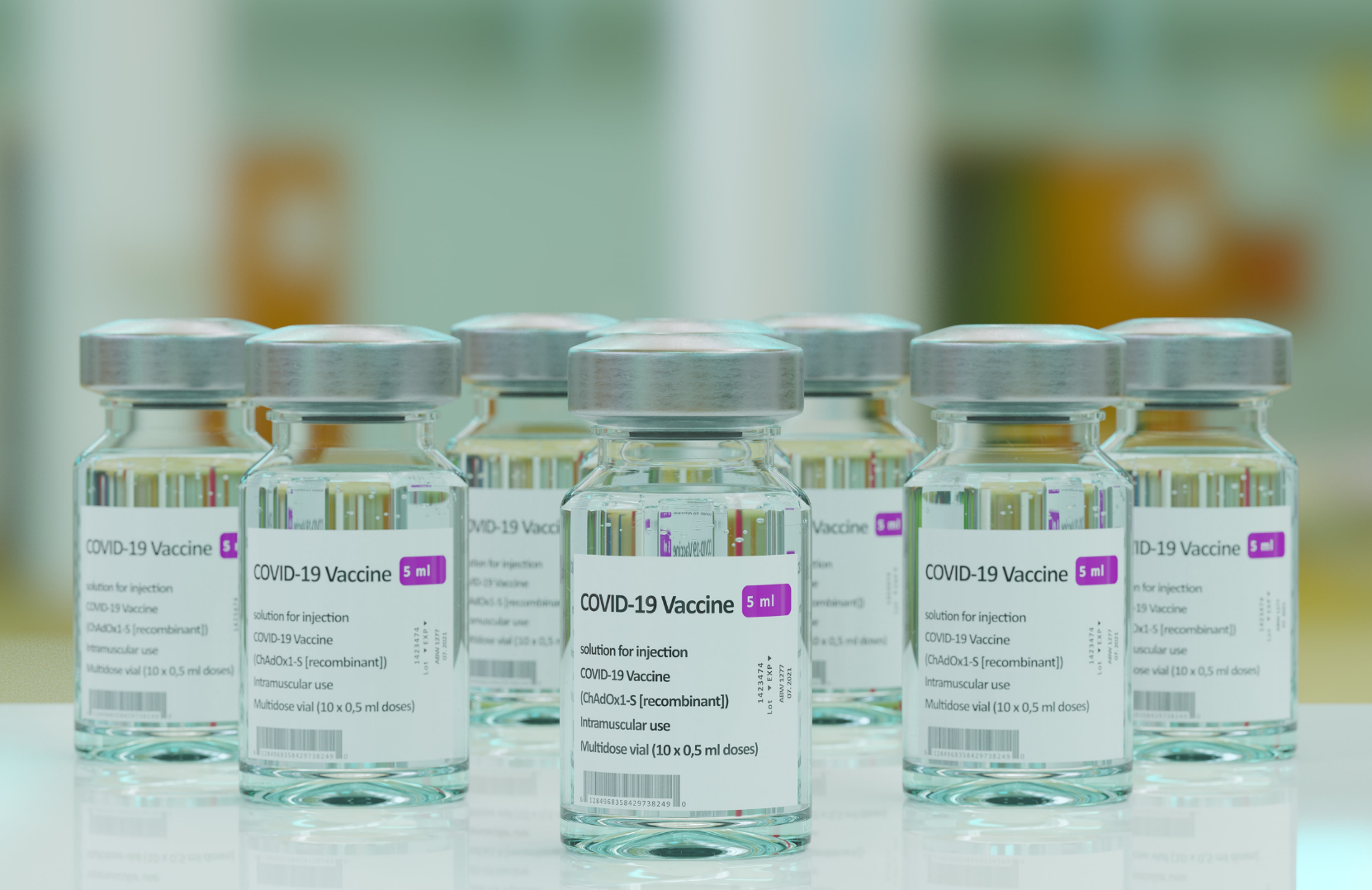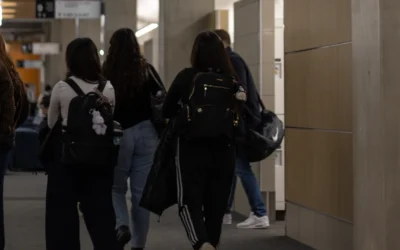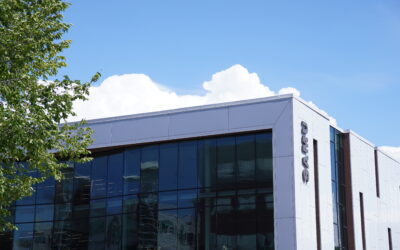Albertans are now facing a fourth wave of the COVID virus. After Premier Jason Kenney announced his open for summer plan in June 2021, which set the trajectory of the fourth wave, the province is now faced with mandatory mask restrictions, limited capacity in shopping malls, and proof of vaccination to enter restaurants and entertainment venues.
Even with these new restrictions in place, at the time of print, there were 12,302 active COVID cases, 981 of which were hospitalized, according to the Government of Alberta. To date, 86 per cent of the provincial population has at least one dose of the COVID vaccine, the Government of Alberta states. What about the other 14.7 per cent? Timothy Caulfield, a health researcher for the University of Alberta, says that a cohort of the 14.7 per cent are “anti vaxxers,” or people who have been misinformed and are hesitant to get the vaccine.
“We’ve started studying the misinformation from the context of COVID right from the start of the pandemic,” Caulfield says. He focuses on studying the nature of misinformation and what evidence says about how to counter it. Caulfield says that most of this misinformation derives from social media posts on platforms such as Facebook and Twitter.
To combat vaccine misinformation, Caulfield started Science Up First with Senator Stan Kutcher, which is a national program created to share truthful, scientific facts about COVID with the help of researchers, scientists, and healthcare experts. The site produces original content about core questions surrounding COVID and the vaccine.
Caulfield says that there has been a lot of misinformation about the harmful effects of the vaccine. “The idea that it causes infertility or changes DNA, it doesn’t.” Caulfield says misinformed facts such as these cause harm, especially for young adults.
Caulfied says another common myth is “the idea that the vaccine is experimental, that they don’t know enough about the vaccine; that’s simply not true.”
“It is one of the most studied vaccines in human history. We have so much data on it.” Statements such as the vaccine not being FDA approved “emanate from the anti-vax community,” Caulfield says.
According to the FDA website, both the Pfizer and Moderna vaccine are authorized for emergency use, and the website also states that “for a community to be fully protected, most community members need to get the vaccine.”
“You hear this more and more that you don’t need the vaccine, natural immunity is better for you. All of that stuff is just noise and not really true.”
Caulfield also addresses the theory that vaccines can segregate society. “This is a very frustrating dimension to the current spread of misinformation, it has become very ideological, and they are also using ‘rights language.’” Caulfield says not only is it inaccurate, but “having a requirement to participate in certain kinds of activities isn’t necessarily segregation. Not getting a vaccine is not an immutable characteristic, it is a choice that you make.” Caulfield says, “that language is coming from the anti-vax community,” and it shows the power that this group can have.
Caulfield says that even absurd theories, such as Bill Gates starting the pandemic to implant microchips into those who get vaccinated, has become normalized through constant sharing on social media. Although statements such as these sound preposterous, Caulfield says “if you believe the research, 20 to 30 per cent of Americans are at least open to the idea, to that really fringy hardcore conspiracy theory.”
So how does misinformation spread this easily to others? Caulfield says that everyone is susceptible to misinformation. “It’s important to recognize that, and we shouldn’t look down upon people who have embraced misinformation.”
“There is research that states that beliefs ‘cluster.’” Caulfield says, “once you start to embrace magical thinking, it becomes easier to embrace other forms of magical thinking.”
Where does this false information stem from? Caulfield says misinformation can be spread for a variety of reasons, one of which is to sell products. “A lot of the most vocal anti-vaxxers are selling products …. Dr. Joseph Mercola, he’s selling supplements; he has a multimillion dollar empire that’s based on the idea that vaccines are bad for you.” Caulfield says that other people use misinformation as part of their ‘brand.’ “Robert F. Kennedy Jr. is a really good example of that, he gives speeches and travels the world to talk about it.”
Robert F. Kennedy Jr. is an American environmental lawyer, as well as an advocate for anti-vaxxers. He voices his opinion publicly by making posts on social media platforms such as Twitter. On Oct. 5 he tweeted “those who resist vaccination are increasingly at risk of losing their right to free speech and the freedom to decide what medicines are injected into their bodies.”
Caulfield says “there’s also evidence that nation states are spreading misinformation about vaccines with the simple straightforward goal of creating information chaos. They’re throwing sand in the gears of our society.”
An ABC News article from May of 2020 states: “foreign nations have also been accused of spreading false information. The State Department said it has identified campaigns by Russia, Iran and China to spread disinformation about the pandemic.”
Caulfied says that stopping the spread of false facts is one of the challenges of this era. To combat this, “we have to teach critical thinking skills, we’ve got to teach media literacy, and get on social media and debunk the misinformation.”
Although the whirlwind of debunking misinformation and myths can be daunting, there is good news. “Eight months ago, almost 50 per cent of the population had some degree of hesitancy in Canada” towards the vaccine, Caulfield says. Today, “depending on the region you’re in, it is somewhere between 15 and 20 per cent.”
Caulfield’s advice for helping those who are hesitant to get the vaccine is: “it’s important to listen to why a particular student or staff member has a degree of hesitancy. Not everyone is a hardcore denier even now.” He says there are still individuals out there who have questions that can be answered. “It’s also important to be empathetic.” The researcher also says, “I would try to give that individual a path to credible information. People don’t change their minds right in front of you.” Finally, the researcher says you can “help them get the vaccine, help them make the appointment, make it as easy as possible to help that individual get the vaccine.”
For students attending the MacEwan University campus, proof of vaccination must be uploaded to the Safe@Macewan app or the MacEwan portal, and rapid COVID testing will be available to individuals until the beginning of the winter 2022 term, except for those who have valid accommodations. For more information visit the MacEwan website.
For those looking for more information on COVID misinformation and facts, visit scienceupfirst.com or the Government of Alberta website. If you are looking to book a COVID vaccine, contact your local pharmacy or visit the Alberta Health Services website.





0 Comments